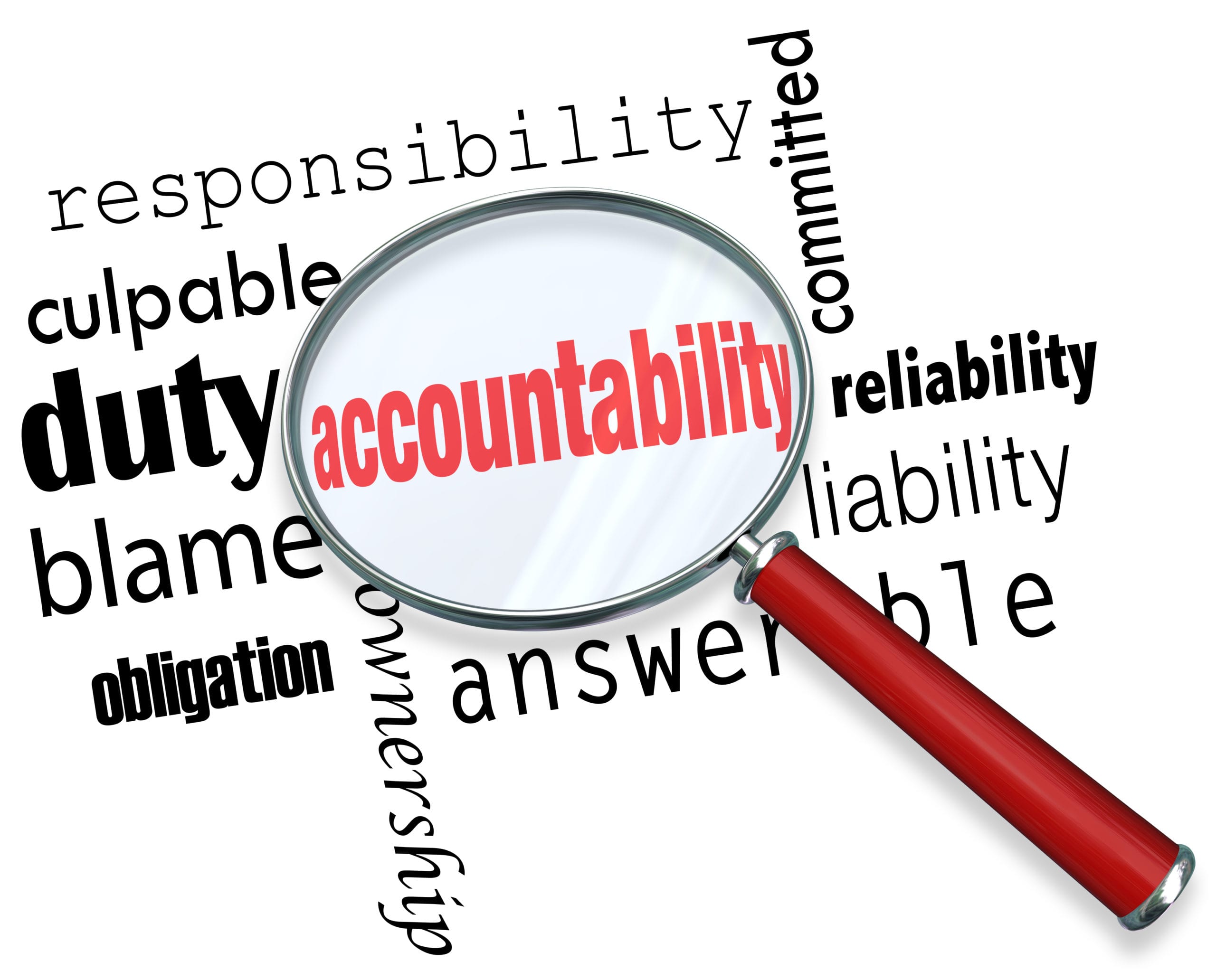There’s a broken thermostat in your boardroom; you’ve come across a new and cheaper option for video conferencing; a small accident hasn’t been logged in the accident book because it’s home time and nobody cares; and a colleague in your team seems to take a sickie on days of international cricket matches……so if you are Jane Doe in a junior role in accounts, what should you report and who to?
Large numbers of UK corporations consider personal accountability a key competency when recruiting and managing their staff. But which of us is accountable and who really knows what is expected of us when our employers say they expect us to be accountable? Likewise, do employers really know what they are looking for and expecting? I suspect few have really thought it through.
What is accountability?
In a nutshell, accountability in the workplace is about being accountable for our actions. Our actions that aim to deliver what is expected of us – as set out in our job specification, given to us by our manager or as set out in the company strategy or value statements.
Can you account for what you have achieved so far today? I.e. can you explain what you have done and why you have done it and how what you have done relates to the tasks and responsibilities assigned to you? Perhaps you can account for two hours of your time this morning, but not necessarily for the third hour when you lost sight of what needed to be done and allowed yourself to be distracted by a friend?
Let me expand a bit…
If you are accountable you know it’s (whatever ‘it’ is) on your shoulders and you know and accept what’s expected of you to deliver. And if ever you are unclear on exactly what is expected of you, you have taken the time to ask the necessary questions to get clarity.
Adding in a bit of complexity…
However, most businesses consider accountability to be much more than just doing what your job specification says or what your manager asks of you. Most businesses take the view that accountability includes a requirement to take ownership and responsibility. By this, I mean go above and beyond in order to identify and respond to what needs to be done in order to serve the business or organisation as a whole.
If this is true of your business, do your staff know that this is your perception of accountability?
Peripheral vision
A great way to look at this aspect of accountability is to talk about peripheral vision. We are usually clear about the tasks and responsibilities that have been given to us, but peripheral vision when going about our work will help us see what else we can or should be accountable for if we are to support the wider organisation.
Whether it’s the enormous box blocking the fire exit that it’s tempting to just walk past, the blocked toilet that you think the facilities manager must already know about, where productivity is being impacted as a result of someone’s sickie’s or endless smoking breaks – if you know about it, you are partly accountable.
To be fully accountable, you don’t just turn up to do your job, but be aware of and responsive to the wider needs and goals of your organisation.
In this situation you know that it is your responsibility to flag up the cheaper video conferencing system, to let the right person know that the thermostat is broken or to inform your manager that Dee’s sickness is not genuine.
The elephant in the room
The harsh reality and elephant in the room is that the repercussions of holding others to account are behind the reason so few managers and employees feel comfortable with a culture of accountability.
Whether it’s a manager holding one of their team to account or an employee holding a colleague to account, a blame culture can breed. Either the manager was unsupportive or failed to clarify responsibilities or the colleague is suddenly discriminating or whistleblowing.
So where does that leave us? Despite accountability being a critical value in organisations – as without everyone’s combined and sustained effort, the jobs we all have to do and the goals we strive for are made so much harder to achieve – directors and senior teams need to take more time to put processes in place to ensure such a culture can be delivered.
For accountability to be a really successful part of your culture, you have got to work through how people are held to account and how those people being held to account are supported going forwards.
Accountability in a culture of respect…
There is a world of difference between being yelled at and humiliated in front of colleagues and having a respectful discussion in private, especially for those not used to criticism or failure.
By all means, let’s hold people to account, but let’s also support them to become more resilient and able to deal with criticism or failure in a mature and positive way. It can be done – just takes a bit more effort!
Managers and those who hold others to account also deserve the same respect. It is not an easy job maintaining standards and those who support this should be praised and thanked, not left to face the wrath of those they have made feel uncomfortable or criticised.
Author: Helen Jamieson, Managing Director, Jaluch
www.jaluch.co.uk | helen@jaluch.co.uk
Helen has been running her own HR and training business for more than 20 years and specialises in Diversity and Inclusion education for employers.





